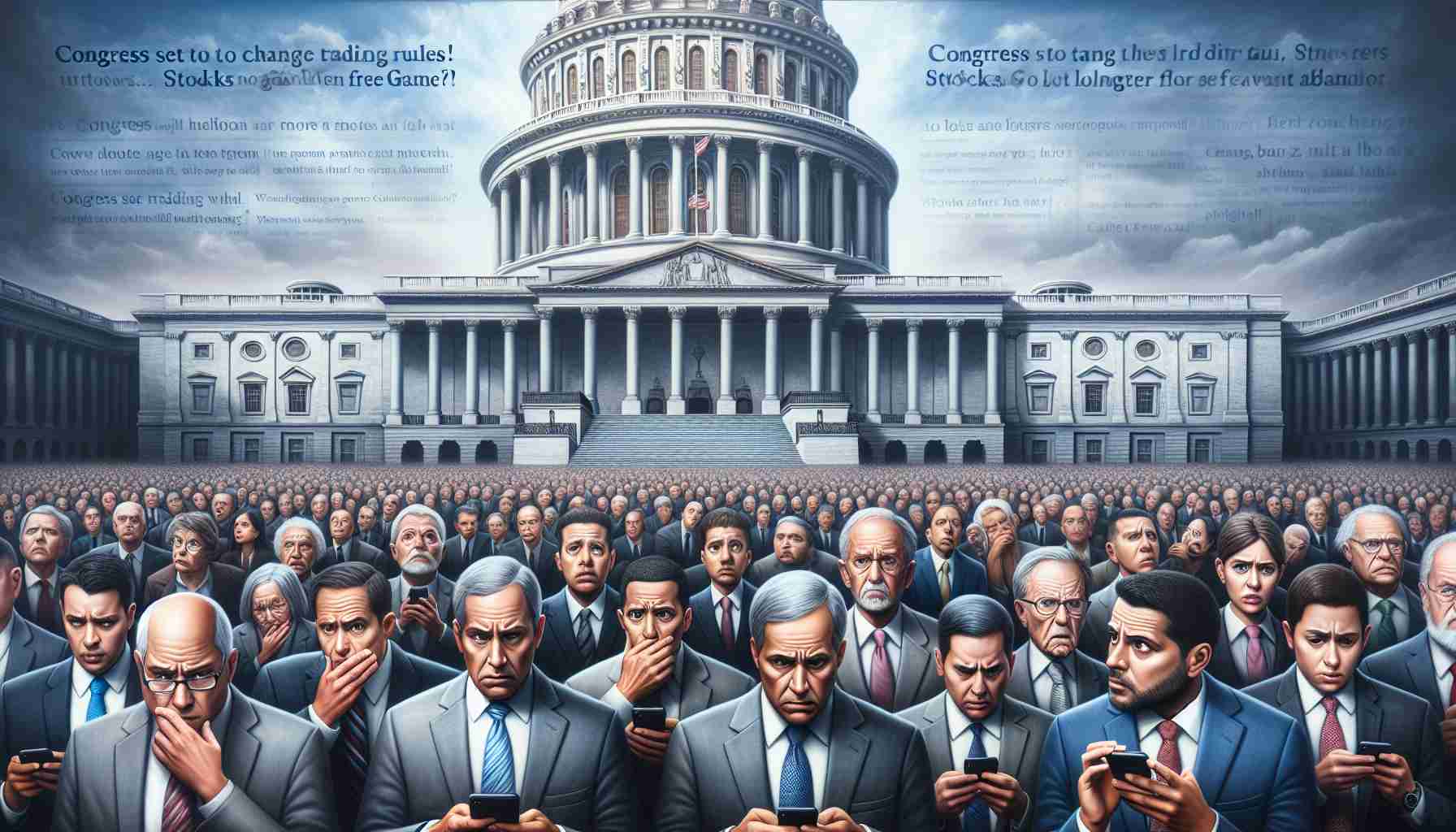In a bold move, President Biden has thrown his support behind a potential game-changer in Washington: a congressional stock-trading ban. As his final weeks in office draw near, Biden’s endorsement adds significant weight to the ongoing debate about ethical transparency among lawmakers.
Biden’s advocacy for this ban aims to prevent members of Congress from trading stocks while in office, a practice critics argue creates conflicts of interest. This comes amid growing public demands for policies that ensure elected officials act in the nation’s best interest rather than personal financial gains. Biden’s backing underscores the urgency and importance of such reforms to bolster trust in government.
The timing coincides with renewed legislative interest as lawmakers push for changes before the year’s end. The proposed ban has been a contentious issue, with some legislators expressing concern that it could unfairly penalize those who act with integrity. Nevertheless, the call for reform has gained momentum, particularly among newer members of Congress who seek to distance themselves from accusations of self-dealing.
As President Biden steers his administration towards transparency and accountability, the potential stock-trading ban reflects a wider effort to boost public faith in governmental processes. Whether the proposal will successfully pass through the legislative process and achieve its reformative objectives remains to be seen.
In the coming weeks, the political landscape will closely watch the developments around this controversial initiative, anticipating what could be a landmark change in the ethical standards governing America’s lawmakers.
President Biden’s Stock-Trading Ban: A Revolutionary Shift in Congressional Ethics?
The endorsement by President Biden of a congressional stock-trading ban could catalyze a significant shift in ethical standards on Capitol Hill. With growing public demand for transparency, Biden’s support adds weight to the effort to impose restrictions on lawmakers trading stocks, aiming to curb potential conflicts of interest and elevate the ethical standards of governance.
Explaining the Stock-Trading Ban
The proposed ban aims to prevent members of Congress from trading stocks while in office. Critics have long argued that this practice could lead to conflicts of interest, wherein lawmakers might prioritize personal financial gains over the public good. By prohibiting stock trading, the goal is to dissolve any perception of self-dealing and ensure decisions made by elected officials are for the public interest.
Pros and Cons
Pros:
– Enhanced Public Trust: Implementing a stock-trading ban could restore faith in governmental integrity, showing that lawmakers are committed to serving constituents rather than their own financial interests.
– Reduction of Conflicts of Interest: A blanket ban would reduce the chances of legislators making decisions that could financially benefit them or their families.
Cons:
– Unfair Penalization of Integrity: Some legislators argue that the ban could unfairly target those who conduct their financial affairs ethically.
– Potential Legislative Resistance: There might be significant pushback from legislators who view such a move as restrictive or unnecessary.
Public Sentiment and Legislative Climate
The public has shown increasing interest in stricter ethical regulations for lawmakers, a sentiment that aligns with Biden’s advocacy for transparent governance. Recent surveys suggest widespread approval for the introduction of such reforms, especially amid high-profile cases of alleged conflicts of interest.
Legislative Trends and Predictions
As discussions heat up, new legislative trends suggest growing bipartisan support for transparency measures. Predictions indicate that, should the stock-trading ban pass, it could pave the way for further ethical reforms, becoming a landmark change that defines Biden’s legacy.
Innovations in Legislative Ethics
Efforts to implement the stock-trading ban could prompt innovative policies around financial disclosures and ethical governance. The move represents a potential stepping stone for reformers aiming to overhaul congressional ethics.
Whether Congress will adopt these measures remains uncertain. The political landscape will closely follow this controversial proposal, as its outcome could redefine ethical norms on Capitol Hill.
For more information about governmental policies, you can visit the official White House website.













